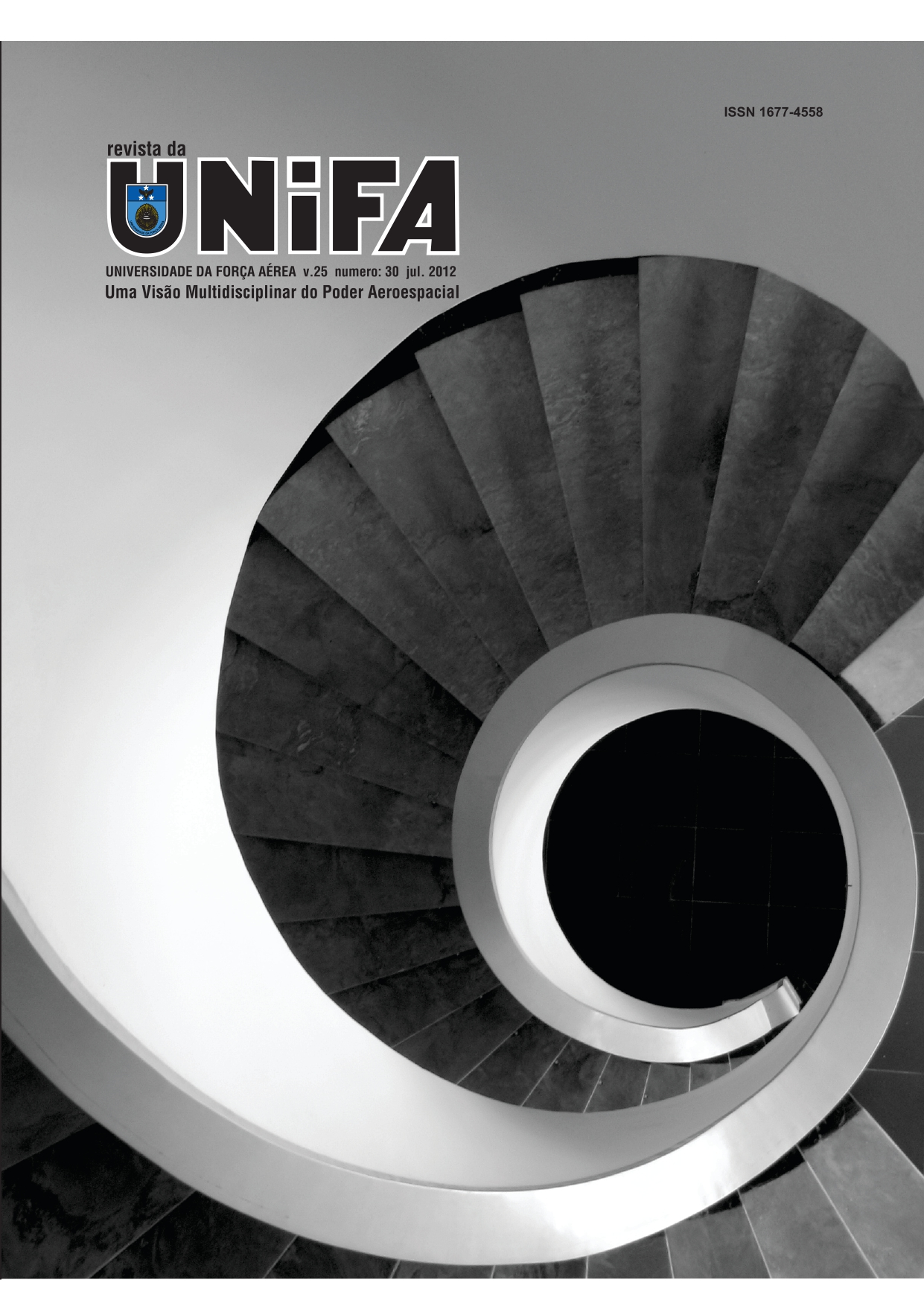Technological Evolution and new Approaches for the Research and Knowledge Development in the Military Teaching
DOI:
https://doi.org/10.22480/revunifa.2012.25.696Keywords:
Education, Armed Forces, Technological Evolution, Military Training, Educational ProjectsAbstract
This essay shows a review about the technological evolution in the contemporary society, which aims to canalize knowledge for the military academic teaching to stimulate the scientific upbringing of the future military officer. The technological progress in developed countries is based on a dynamic educational system that catalyzes the production of new ideas, products, information and knowledge systems, which are attributes of their socioeconomic scientific, and cultural development. On the other hand, the history shows that countries which are unattached with educational challenges are subdued by the technological dependency. The military officers training can be benefited by educational programs which promote knowledge seek. The upbringing of the future military officers should stimulate the work that recognizes and uses the talents and values of the institution. These approaches require a strategic plan, a vision of future, acceptance of new paradigm, researches and investments in human knowledge; once the officers should make decisions on the air, at sea or on land, so he needs these attributes to command. Some concepts directed to educators are discussed in order to encourage some reflections about a better management of knowledge. This essay also makes some historical considerations about science, technology, and innovation in the armed forces, as well as the phenomenon of globalization, technological acceleration and power.
References
BAUMAN, Z. Vida líquida. Rio de Janeiro: Jorge Zahar, 2007, 212 p.
CASTELLS, M. A sociedade em rede. São Paulo. v. 1. 6. ed.: Paz e Terra, 2006, 698 p.
CHAROUX, O.M. G. Metodologia: processo de produção, registro e relato do conhecimento. São Paulo: DSV, 2004, 128 p.
CRAWFORD, R. Na era do capital humano, o trabalho, a inteligência e o conhecimento como força econômicas, seu impacto nas empresas e nas ações de investimento. São Paulo: Atlas, 1994, 186 p.
DAVIES, N. Europa na Guerra: 1939-1945, uma vitória nada simples. Rio de Janeiro: Record, 2009, 608 p.
MINISTÉRIO DA DEFESA. Decreto nº 6.703 de 17 de dezembro de 2008. Estratégia nacional de defesa. Brasília, DF: DOU, 18 de dezembro 2008.
GARDNER, H. Cinco mentes para o futuro. Porto Alegre: Artmed, 2007, 160 p.
HIGMAN, R.; PARILLO, M.P. The management margin essential for victory. Air& Space Power J., v. 16, n. 1, p. 19-27, spring, 2002. Disponível em: . Acesso em: 30 nov. 2009.
LONGO, W. P. Impactos do desenvolvimento da Ciência & Tecnologia na defesa nacional. In: ROCHA, M. Política – ciência & tecnologia – defesa nacional. Rio de Janeiro: UNIFA, nov. 2009. p. 27-63.
MEILINGER, P.S. Ten propositions regarding airpower. In: Air power j. v. 50, p. 52-72, spring.1996. Disponível em: <http://www.airpower.maxwell.af.mil/airchronicles/ apj/apj96/spr96.html>. Acesso em: 30 jul. 2009.
MORIN, E. Jornadas temáticas: a religação dos saberes, o desafio do século XXI. Rio de Janeiro: Bertrand Brasil, 2001, 588 p.
PHISTER, P.W.; PLONISCH, I.G. Military applications of information techinologies. In: Air & Space Power j. v. 18, n. 1, p. 77-90, spring. 2004. Disponível em: . Acesso em: 30 nov. 2009.
PRAHALAD, C.K.; HAMEL, G. Competindo pelo futuro: estratégias inovadoras para obter o controle do seu setor e criar os mercados de amanhã. 19. ed. Rio de Janeiro: Elsevier, 2005, 400 p.
CONCIL INTELLIGENCE AGENCY (CIA). Como será o mundo em 2020. Tradução de Cláudio Blanc; Marly Netto Peres. São Paulo: Ediouro, 2006, 238 p. Relatório.
TOFFLER, A. A riqueza revolucionária. Tradução de Maiza Prande Bernadello; Luiz Fernando Martins Esteves. São Paulo: Futura, 2007, 587 p.
Downloads
Published
Issue
Section
License
Copyright (c) 2012 Luciene Conte Kube

This work is licensed under a Creative Commons Attribution-NonCommercial 4.0 International License.
Revista da UNIFA permite que o (s) autor (es) mantenha(m) seus direitos autorais sem restrições. Atribuição-NãoComercial 4.0 Internacional (CC BY-NC 4.0) - Revista da UNIFA é regida pela licença CC-BY-NC









